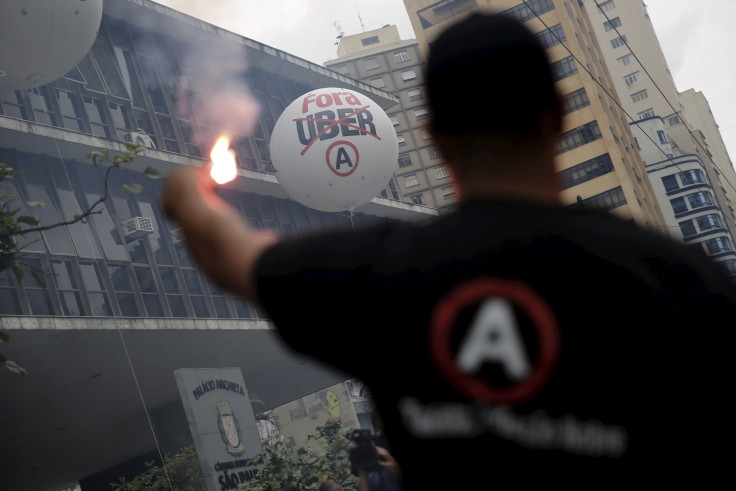Sao Paulo Wants A Cut Of Uber Sales; Cabbies Protest Plan As Inadequate

Lawmakers in Sao Paulo have proposed charging Uber Technologies a percentage of its sales, a move that was welcomed by the ride-hailing service, according to reports. However, the plan was met with protests from taxi unions in Brazil’s largest city, who reportedly felt it did not do enough to curb Uber’s rapidly growing influence.
Sao Paulo Mayor Fernando Haddad reportedly said that the plan would accept Uber drivers as part of the city's transportation system if they pay a license fee for each trip they make. A final decision will be made after a public consultation that ends in 30 days. Uber reportedly endorsed the proposal as "innovative" in a statement, and said it would take part in the consultation process.
Meanwhile hundreds of taxi drivers blocked roads Tuesday in key areas, including the city center and the airport. Sao Paulo’s powerful taxi unions -- who have long sought heavier regulation on Uber -- dismissed the proposal and warned they would set up more roadblocks.
Taxistas agridem equipe da Globo em protesto em frente à Prefeitura de São Paulo https://t.co/OJm8ARMAVH pic.twitter.com/3s0LdayYz5
— UOL Notícias (@UOLNoticias) December 29, 2015The unions have long-complained that Uber drivers are not properly regulated and have fewer overhead costs, giving them a competitive edge over traditional cab services.
Sao Paolo’s first attempt at enforcing controls on the rapidly growing ride-hailing service -- by creating a category called “black cabs” to bring Uber’s executive cars under its purview -- reportedly failed after the company said it was not a taxi service and continued to operate as normal.
The latest proposal also calls for ride-hailing apps like Uber to include features to allow drivers to pick up multiple users and allow them to share rides to similar destinations. Uber already provides such a service in other cities around the world.
Meanwhile, Uber is also fighting a total ban on its operations in Brazil’s second-largest city, Rio de Janeiro. The app-based cab service is the most valuable private company in the world.
© Copyright IBTimes 2025. All rights reserved.





















